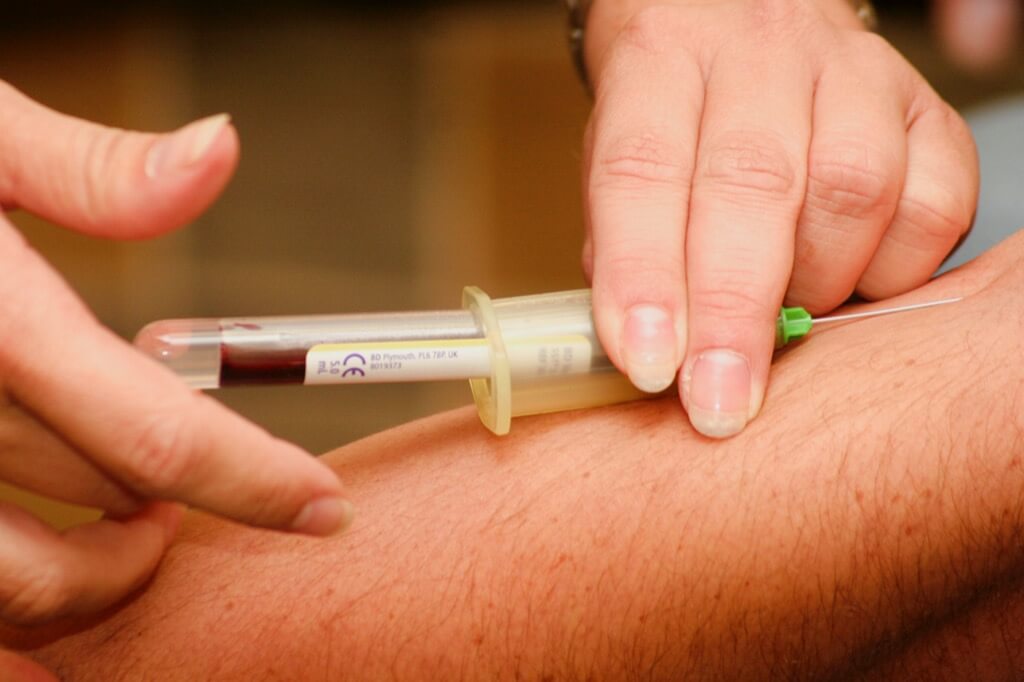The Complex Symphony of Blood
Blood isn’t just the life-giving fluid coursing through our veins. It’s a cacophony of cells and chemicals working in concert to nourish and defend us. Dive into the vast ocean of your blood, and you’ll find red blood cells representing almost 45% of its volume. The mighty white blood cells, although fewer in number (below 1%), serve as our prime defenders against invaders. The remaining 55%? That’s plasma, a golden fluid with its own set of wonders.
Inherited Blood Types: The Malaria Connection
While your blood type is typically a gift from your ancestors, passed down through generations, there are rare instances, such as bone marrow transplants, that can trigger a change. The mysterious world of blood types still keeps many secrets, but one revelation is its connection to disease resistance. Did you know that in regions like our magnificent Africa, about 51% of the population boasts type O blood? One reason for this is the unfortunate prevalence of malaria. Intriguingly, type-O blood offers a degree of protection against the severity of malaria. An evolutionary adaptation, perhaps?
Decoding Blood Types: A, B, AB, O and the Rh Factor
Almost 90% of the world’s population can be grouped into four main blood categories. These categories, A, B, AB, and O, are like the ancestral melodies in the great song of humanity. The name “O” actually signifies “zero” or “null”, hinting at the absence of certain antigens. Antigens are like unique flags on the surface of red blood cells, triggering antibody production for immune defense. Add the rH factor into the mix, and you get the “positive” and “negative” subdivisions, creating a mosaic of blood types.
Mixing Blood
When it comes to transfusions, not all blood types play nicely together. A mismatch can lead to a harmful immune response, destroying the newly introduced blood and potentially causing severe complications. AB+ individuals are often called “universal recipients” as they can accept various blood types. Still, there are always nuances and exceptions, reminding us that biology loves complexity as much as we love unraveling it.
For those with the precious O- blood type, they possess the rare ability to donate to almost anyone. Given that they represent only 7% of the global population, their donations are invaluable, especially in emergencies where there’s no time to check compatibility.
The World of White Blood Cells and Plasma
Venturing further into our bloodstream, we encounter the army of white blood cells. Each type, from Neutrophils to Lymphocytes, has its specialized role, working tirelessly to defend against threats. For instance, a spike in Neutrophils can signal a raging bacterial battle within.
Completing our journey is plasma, primarily water but enriched with proteins, hormones, and essential nutrients. This component is often overlooked but plays crucial roles in transport, defense, and clot formation.
The Ethics of Blood Selling
Blood banks and donation centers have, for years, relied on the goodwill of citizens to donate blood voluntarily. However, a growing debate focuses on whether individuals should be financially compensated for their donations. Proponents argue that compensation could address blood shortages, especially for rare types. Critics, however, believe that introducing money could lead to undue pressure, decrease altruistic donations, and potentially even encourage false health declarations.
Genetically Modified Blood Cells
In an era where genetic modification has become a possibility, there’s a rising discourse around genetically modifying blood cells to combat diseases. Imagine blood cells tailored to fight specific pathogens or modified to suit any recipient regardless of blood type. While the benefits could revolutionize medicine, concerns about the ethical implications, potential side effects, and long-term impacts on human evolution persist.
Blood Type and Personality Traits
In certain cultures, notably in Japan, there’s a popular belief that blood type correlates with personality traits. From matchmaking to job recruitment, blood types have occasionally played a role in decision-making. While many dismiss these beliefs as pseudoscience, it’s an intriguing debate that juxtaposes cultural beliefs with scientific skepticism. Should such beliefs influence societal norms, or should they be relegated to the annals of folklore?
Blood in Cultural Rituals and Symbolism
Across many African cultures and beyond, blood has often been revered and used in rituals, symbolizing life, death, and rebirth. From rites of passage to sacrificial ceremonies, blood has held deep spiritual significance. As modern society grapples with respect for traditions versus concerns about health and animal rights, the role and significance of blood in cultural rituals remain a hotly debated topic.
The Future of Artificial Blood
Science has made leaps in creating lab-grown organs, but what about artificial blood? The potential for lab-produced blood, free of pathogens and compatible with all, is a tantalizing prospect. It could end blood shortages and prevent transfusion-transmitted infections. However, debates arise around its safety, the potential loss of jobs in the blood donation sector, and the very idea of replacing a natural substance with a synthetic one.
The Negative Impact Of Mixing Blood Types
Immune System Rejection
One of the primary reasons different blood types cannot be mixed is the body’s immune system. When the wrong type of blood is introduced into a body, the immune system identifies it as a foreign entity and produces antibodies to attack it. This immune response can lead to the immediate destruction of the transfused blood, making the transfusion ineffective and potentially causing harm to the recipient.
Risk of Severe Reactions
When a person receives the wrong blood type, their body might react in severe ways. Symptoms can range from fever, chills, and hives to more serious complications like kidney failure, shock, or even death. These reactions are not just limited to the immediate aftermath of the transfusion but can manifest days or even weeks later.
Blood Clotting and Circulation Problems
Blood transfusions using incompatible blood types can lead to clotting. Clots can obstruct blood vessels, preventing vital oxygen and nutrients from reaching organs and tissues. This can cause damage to organs, tissue necrosis, or even conditions like stroke if the clot travels to the brain.
Limited Availability for Rare Blood Types
Given that specific blood types, like O-, are universal donors, they are in high demand. However, if blood types could be combined, the pressure on such rare blood types would be alleviated. But since combining different types isn’t possible, individuals with these blood types are often called upon to donate more frequently, potentially leading to donor fatigue or shortages.
Challenges in Emergency Situations
In emergency situations, there might not be enough time to determine a patient’s blood type. Having to stock up on every blood type, especially the rarer ones, becomes crucial, leading to storage challenges. If blood types could be combined, this would reduce the necessity to have a wide variety of blood immediately available, ensuring faster and more effective emergency medical responses.




